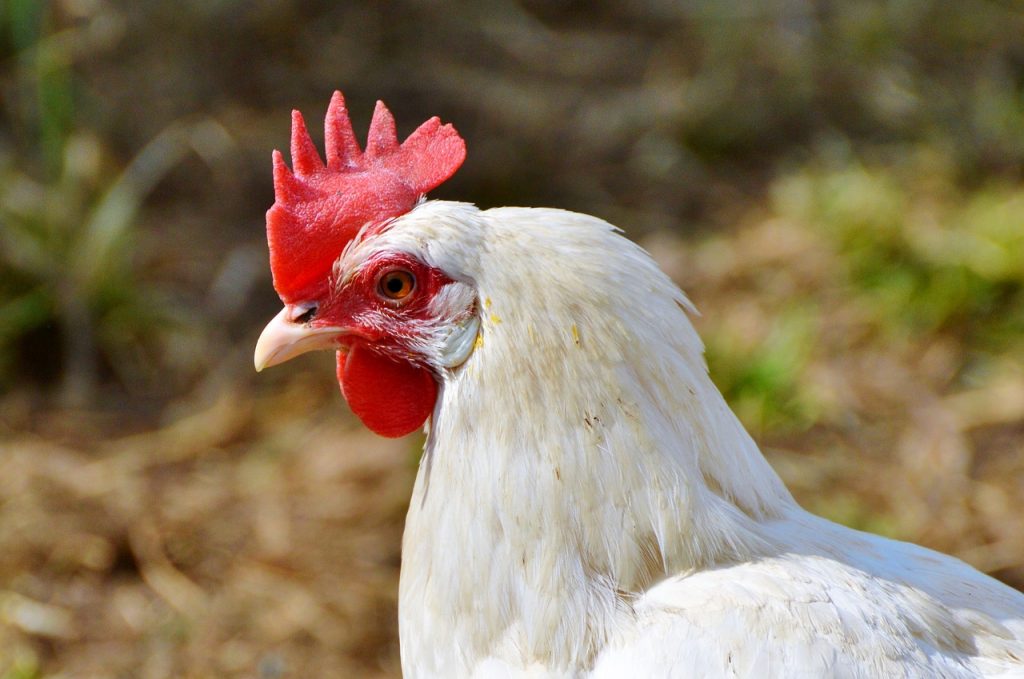
You’ve got gout. Should you be avoiding chicken because of its purine content? Read on to discover why there’s no need to avoid it completely and three gout-friendly chicken recipes from Chef Robert Irvine.
Chicken and Gout
Many people substitute red meat with white meat for health reasons and/or to help them lose weight. And when people think of white meat they invariably think of chicken. No wonder; it’s a great source of protein, has zero carbs, and low in both fat and sodium, especially organic and pasture-raised chickens.
Chicken is rich in vitamins and minerals such as:
- vitamin A
- vitamins B1, B2, B3 ,B6, B12
- vitamin D
- vitamin E
- vitamin K
- copper
- iron
- magnesium
- phosphorus
- potassium
- selenium
- zinc
So chicken has high nutritional value that can help to build healthy strong bones and teeth, produce energy and muscle movement, aid immune system functionality, help activate thyroid hormones, and help to maintain healthy kidneys, blood vessels, and cells.
And, of course, it’s versatile in the kitchen and so easy to incorporate into a healthy diet. It’s also widely available and relatively cheap.
But what if you suffer with gout? Does chicken belong in a gout-friendly diet?
Can You Eat Chicken with Gout?
Gout is a painful form of arthritis caused by too high uric acid levels in the bloodstream, a medical condition known as hyperuricemia. The condition can result in tiny needle-shaped crystals of monosodium urate settling in the joints and associated tissue. This triggers the body’s natural inflammatory response that causes the painful symptoms of gout, or more accurately, gout flares or attacks.
Most gout attacks occur in the joint at the base of the big toe, although other joints can be affected too. And if crystals enter the urinary tract they can clump together in the kidneys to form very painful uric acid kidney stones.
Uric acid is a waste product of purine metabolism, which purines are natural chemical compounds found in the cells of all living things; we humans, animals, marine life, and plants.
Some 30% of the uric acid in our bodies is produced from the breakdown of purines in our food. Thirty percent is not insignificant and consuming too many purine-rich foods can result in excess uric acid building up in the body.
Which is why gout patients are generally advised to move to a low-purine diet to lower the risk of gout attacks. This entails the complete avoidance of high-purine foods and only consuming limited amounts of moderate-purine foods.
So, is chicken high in purines? Does chicken produce too much uric acid to be safe in a gout diet?
Chicken is Safe in Limited Amounts
The good news for we gout sufferers is that chicken meat is moderately high in purines, as can be seen in the following extract taken from one of the purine tables in my gout guide Gout Rescue. Note that chicken soup and chicken stock are moderately high too.

So chicken can form part of your gout diet, just as long as it is eaten in moderation:
- Limit chicken consumption to 1 x 3.5 oz (100 g) serving per day. Try to keep to one serving of moderate purine food per day.
- Buy organic or pasture-raised chicken whenever possible. Organic chicken’s nutrient quality is generally higher than intensively reared chickens.
- Pasture-raised chickens are even healthier. Studies have shown they have decreased fat and increased protein concentrations giving a good fat / protein balance.
- Talk to your grocer or supplier and find out how the animals were actually raised. Don’t just depend on the label.
Avoid chicken livers as these are very high in purines, as are all organ meats.
But watch how you prepare and cook chicken!
Select the leanest cuts of chicken, e.g. skinless chicken breast in preference to thighs and drumsticks which have higher fat and cholesterol content.
Broil, braise, roast, grill, or poach the chicken breast instead of frying. We all love fried chicken, but it’s a definite no-no if you have gout.
Whilst chicken is safe to eat in moderation, sauces, additives and accompaniments can pose a risk, not only because of their purine, fat and salt content, but also their fructose content.
Studies point to a strong link between high fructose consumption and an increased risk of gout. And fructose, most often in the form of high fructose corn syrup, is found in a whole range of commercial food products, including coatings, sauces, ready mixes, canned goods, baked goods, and many more.
So avoid using commercial sauces, gravies, and coatings as these are often high in purines, fructose, fat, and salt. Make your own from scratch using fresh ingredients.
Just keep it simple, for example:
- Grilled chicken breast with boiled potatoes, carrots and parsnips.
- Homemade chicken soup.
- Homemade chicken curry with brown rice.
And here are 3 healthy chicken recipes from Chef Robert Irvine…
If you’re a gout sufferer, it’s perfectly fine to incorporate chicken into your gout diet, just as long as it’s consumed in moderation (3.5 oz serving).



